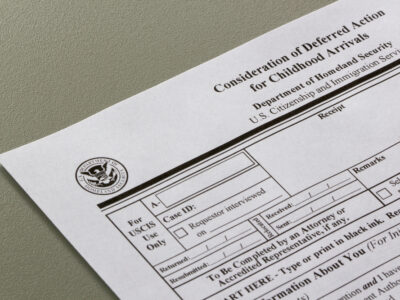As a Californian who has been out of work for a while due to a work-related injury, you may find the readjustment period quite a challenge. The Law Offices of Hussain & Gutierrez are here to help you work through this adjustment and get back on your feet again.
You may be uncertain about many things when returning to work, along with having tons of questions. Are you actually ready to go back? Will you be able to work at your old capacity? What will you do if you’re asked to do things that you feel you’re currently incapable of doing? Should you even be back at all?
Even if a doctor says you’re ready to return to work, they aren’t always right. If you feel like they have made a mistake in their judgment, you’re able to have a second evaluation done by a type of doctor known as a qualified medical examiner (QME). They will provide a thorough analysis of your ability to work.
As far as your job goes, you may have rights to get job placement benefits if your employer doesn’t give you work upon your return. If you’re unable to do your old job anymore, you can also look into options for other jobs based on your current level of ability.
If you’re dealing with this readjustment period and would like to look more into returning to work after an injury, you can check out our web page on workers’ compensation for more information. The options that are available will often differ from situation to situation.
Understanding the Full Process of Returning to Work
The path back to employment after an injury is rarely simple. In California, your return depends not only on a doctor’s clearance but also on state law and your employer’s obligations. Typically, the process begins with your treating physician, who determines when you may be fit to return.
However, disagreements often arise when an employee feels they cannot perform their job safely, despite having received medical clearance. In such cases, you have the right to request a QME evaluation within strict deadlines, usually within 10 days of receiving the panel request from the Division of Workers’ Compensation.
Types of Injuries That Affect Return-to-Work Decisions
The nature of your injury plays a crucial role in determining your future at work. Employees suffering from traumatic injuries such as fractures, back injuries, or traumatic brain injuries may require longer recovery periods and specific accommodations. Others with repetitive stress injuries, like carpal tunnel syndrome or tendonitis, may only be able to perform modified duties. In cases of cumulative trauma where the injury develops over time due to repetitive tasks the return-to-work process may require significant adjustments to prevent further harm.
Recognizing the type of injury is essential because it dictates not just your medical recovery but also your legal rights to certain benefits and workplace protections.
The Role of Qualified Medical Examiners (QME)
A QME is not just any doctor. They are certified specialists who provide independent assessments when there is a dispute about your condition or ability to work. Their evaluation carries substantial legal weight because it determines whether you are entitled to disability benefits, workplace accommodations, or retraining opportunities.
The QME’s report can influence:
- The level of permanent or temporary disability benefits you may receive.
- Whether your employer must provide modified or alternative duties.
- How is your claim resolved if there is a dispute between you and your physician.
If your physician’s opinion and the QME’s evaluation conflict, the Workers’ Compensation Appeals Board may ultimately review your case.
Employer Obligations Under California Law
Your employer is not free to decide on a whim whether you may return to work. California labor law requires them to engage in an interactive process, particularly if you have lasting restrictions. This process includes meeting with you, reviewing your medical documentation, and making reasonable efforts to accommodate your disability.
Examples of reasonable accommodations may include:
- Adjusting work schedules or reducing hours.
- Providing assistive devices or modified equipment.
- Reassigning you to less physically demanding tasks.
Employers are also prohibited from retaliating against employees for filing workers’ compensation claims. If your employer fails to accommodate you or pressures you to perform tasks outside your restrictions, you may have grounds for further legal action.
Benefits Available if You Cannot Return to Your Old Job
If you cannot resume your prior duties, California workers’ compensation provides several layers of financial protection:
- Temporary Disability Benefits: Partial wage replacement while you recover.
- Permanent Disability Benefits: Long-term compensation if your injury causes lasting impairment.
- Supplemental Job Displacement Benefits (SJDB): A voucher to cover retraining or education if your employer cannot offer suitable work.
- Medical Coverage: Ongoing treatment for your injury, including future medical care.
- Reimbursement Rights: Coverage for travel costs related to medical appointments.
Risks of Returning Too Soon
Many employees feel pressured to return quickly to secure their job or avoid conflict with their employer. However, returning too soon can create serious risks:
- Aggravating your injury and prolonging recovery.
- Losing access to certain benefits if your condition worsens.
- Facing employer or insurer pressure that is not aligned with your medical needs.
Protecting your long-term health must take priority over immediate workplace demands.
Appeals and Disputes in Workers’ Compensation Cases
If you disagree with the decision made by your employer or insurer, you have the right to appeal through the Workers’ Compensation Appeals Board (WCAB). Disputes often arise over:
- The extent of your disability.
- The adequacy of your medical treatment.
- Eligibility for specific benefits.
Having legal representation ensures your case is presented effectively and that you meet all procedural deadlines.
Frequently Asked Questions
Can my employer fire me if I don’t return to work when they expect?
Employers cannot legally terminate you in retaliation for a work injury claim. However, if you are medically cleared and refuse work without supporting documentation, you may risk losing your position.
How long can I stay on workers’ compensation before returning to work?
Temporary disability benefits are generally limited to 104 weeks within five years of your injury, though some conditions allow for exceptions.
What is the difference between temporary and permanent disability?
Temporary disability applies during your recovery period. Permanent disability is awarded when your injury leaves lasting limitations.
How do I request a QME evaluation?
You must file a request with the Division of Workers’ Compensation. A panel of QMEs will be provided, and you will select a doctor from that list within set deadlines.
What if my employer refuses to accommodate my restrictions?
You may be eligible for supplemental job displacement benefits and could also pursue further legal remedies if labor laws are violated.
Protect Your Rights with Hussain & Gutierrez
Returning to work after an injury is not just a personal challenge; it is a process governed by law, medical evaluations, and employer responsibilities. Every decision, from seeking a QME to disputing an employer’s refusal to accommodate, can impact both your health and your financial stability.
The attorneys at Hussain & Gutierrez are committed to ensuring that injured workers understand their rights and secure the benefits to which they are entitled. Whether you are worried about your readiness to return, uncertain about your employer’s obligations, or facing disputes with insurers, we are here to guide you.
Take the next step today: Contact Hussain & Gutierrez for a consultation and let us help you protect your health, your career, and your future.



